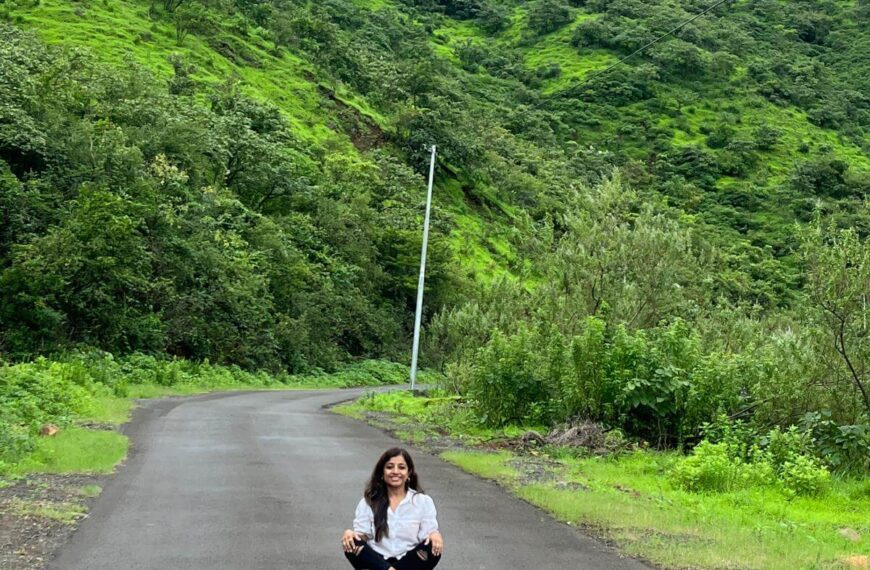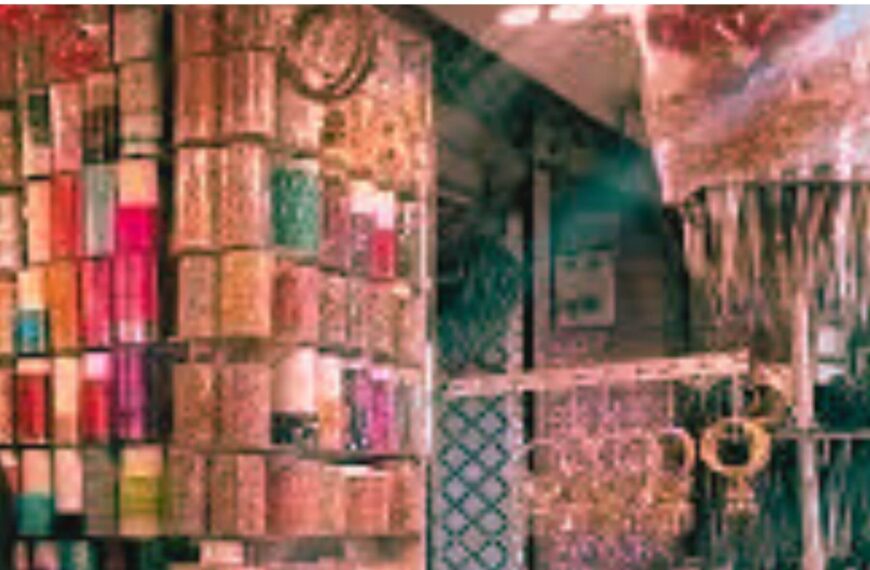The first step into army life was a long, seemingly unending train journey to North Bengal, from where an arduous and treacherous road trip took us to the higher reaches of Sikkim. We travelled along the Teesta River and crossed the famous Tiger Bridge. The deafening roars of the majestic Teesta were frightening. Orange orchards along the route took my breath away. Never having ventured farther than New Delhi or Shimla in my frog in the pond existence, this was the start of many such forays to unheard of places on the map the Nathula pass, located at 14,140 feet, through which the ancient Silk Route operated till 1962, was where we were headed. Lily unravels the life of a young bride of an army officer, in her weekly column, exclusively for Different Truths.
Galvanised into action as a young bride, I had visions of an absolutely novel and exciting way of life. Having grown up in a small albeit modern town, in the shadows of the Shivalik mountain range in the north of India, for all of my 20 years, the thrill of greener and fresher pastures turned somersaults in my  bloodstream .Wander lust was straining at the reins.
bloodstream .Wander lust was straining at the reins.
The first step into army life was a long, seemingly unending train journey to North Bengal, from where an arduous and treacherous road trip took us to the higher reaches of Sikkim. We travelled along the Teesta River and crossed the famous Tiger Bridge. The deafening roars of the majestic Teesta were frightening. Orange orchards along the route took my breath away.
Never having ventured farther than New Delhi or Shimla in my frog in the pond existence, this was the start of many such forays to unheard of places on the map the Nathula pass, located at 14,140 feet, through which the ancient Silk Route operated till 1962, was where we were headed.
We passed through the picturesque and emerald green town of Gangtok, which was the capital of an independent monarchy after the British rule ended. It became a part of India, in 1975.The meaning of its name is “lofty hill”. It became a famous place of pilgrimage after the Enchey monastery was built there, in 1840.
 The countryside now changed drastically. Pictures and drawings of dragons ruled the roost on walls, clothes and furniture. The Sikkimese were mostly Buddhist and had a wealth of thangkas in their stunning monasteries. Thangkas are Tibetan Buddhist scroll paintings on cotton or silk appliqué, usually depicting a Buddhist deity, scene or mandala. Huge gold statues of Buddha presided over the deep bass monotonous sounds of chants. Little boys with shaven heads, lamas and monks in deep red robes walked around busily mouthing prayers.
The countryside now changed drastically. Pictures and drawings of dragons ruled the roost on walls, clothes and furniture. The Sikkimese were mostly Buddhist and had a wealth of thangkas in their stunning monasteries. Thangkas are Tibetan Buddhist scroll paintings on cotton or silk appliqué, usually depicting a Buddhist deity, scene or mandala. Huge gold statues of Buddha presided over the deep bass monotonous sounds of chants. Little boys with shaven heads, lamas and monks in deep red robes walked around busily mouthing prayers.
Huge decorative prayer wheels dotted the hill slopes. I was goggle eyed and soaking up the unique sights and sounds. The Rumtek monastery still floats across my eyes sometimes with its elegant carvings and red edgings. The women were pretty and dainty with straight long black hair and doll like physiques. A veritable mountain paradise it was!
As the road snaked up, I was bedazzled by the sight of gigantic blood red rhododendrons blossoming all along the path. They looked radiant against the stark white of the snow. My ghoulish imagination found them reminiscent of pools of blood on the virgin snow. The size of the Rhododendron plants changed as we climbed the mountains. They became dwarf bushes from full grown trees as the altitude increased. All this while we were in a jeep. My brand new husband and another soldier along with the driver. We had ambled past the most scenic views of tea gardens and elephant herds without much oohing and aahing except by me. The utter beauty of the flower dotted mountains was lost on the army men.
I was on my best behaviour and still clad in my finery till hunger pangs started gnawing at my insides. There was no mention of food or even any passing reference to refreshments of any kind. I think the newly married gentleman had forgotten that a rather famished lady was sitting squashed up in an uncomfortable position in the narrow confines of the jeep. I haltingly inquired from the soldier besides me if we still had to travel far. He nodded noncommittally and I went back to snow gazing.
Cherubic round faces of children trudging far to school and ladies carrying firewood on their backs flashed past.
Our destination came at over 14000 feet. The atmosphere was rarefied and I felt a tad breathless. The vista was breath taking. An expanse of sparkling blue waters bedazzled my eyes. Our destination was the  awe inspiring glacial lake called Tsomgo Lake or Changu Lake in East Sikkim, about 40kms from Gangtok. It is a restricted area where fishing for the world famous trout is not allowed during the summers when the snows melt. This lake is also the natural habitat of Brahminy Ducks. An ancient Shiva temple is also located there.
awe inspiring glacial lake called Tsomgo Lake or Changu Lake in East Sikkim, about 40kms from Gangtok. It is a restricted area where fishing for the world famous trout is not allowed during the summers when the snows melt. This lake is also the natural habitat of Brahminy Ducks. An ancient Shiva temple is also located there.
I was told that the troops played ice hockey and skated on the lake in winters.
Makeshift living quarters which were tin sheds for the soldiers and officers amidst deep snow startled me by their size. Only a princely 8 feet by 6 feet cubicle, adorned by a luxurious bed made of two wooden planks. All this extravagance warmed by a Bukhari. A rickety side table had a mini cassette player for entertainment. I was amused and secretly thrilled to see my own framed, pre marriage photograph sitting gloriously near the precious cassette player. It goes to the survival instincts of human beings that they adapt to any weather conditions. It pained me to see how  tough it was for the troops who hailed from the sunnier and warmer climes of our country to live under these often unbearable conditions. Food and fuel sometimes never reached if the helicopter or the trucks did not make it through the blizzards. There were numerous cases of frostbite and of blinding by sunlight dazzling on the snow. Young lives were incapacitated forever due to the inhospitable conditions. It was the early eighties and technology was still in its infancy. Coal fires heated bath water for the men and songs of old Hindi films were the only entertainment. It was heartening to see a medley of cabaret numbers playing on a screen on a wall.
tough it was for the troops who hailed from the sunnier and warmer climes of our country to live under these often unbearable conditions. Food and fuel sometimes never reached if the helicopter or the trucks did not make it through the blizzards. There were numerous cases of frostbite and of blinding by sunlight dazzling on the snow. Young lives were incapacitated forever due to the inhospitable conditions. It was the early eighties and technology was still in its infancy. Coal fires heated bath water for the men and songs of old Hindi films were the only entertainment. It was heartening to see a medley of cabaret numbers playing on a screen on a wall.
The officers would help the locals as well as they could. They carried sweets and chocolates in their pockets for the red cheeked children.
The Chinese were not too far away. I was lucky to stand at the Nehru Stone, at Nathu La pass, where diplomatic mail is exchanged even now. One could make eye contact with PLA. One could see them on their pickets and sometimes hear their music wafting across the snow.
©Lily Swarn
Pix from Net.








 By
By

